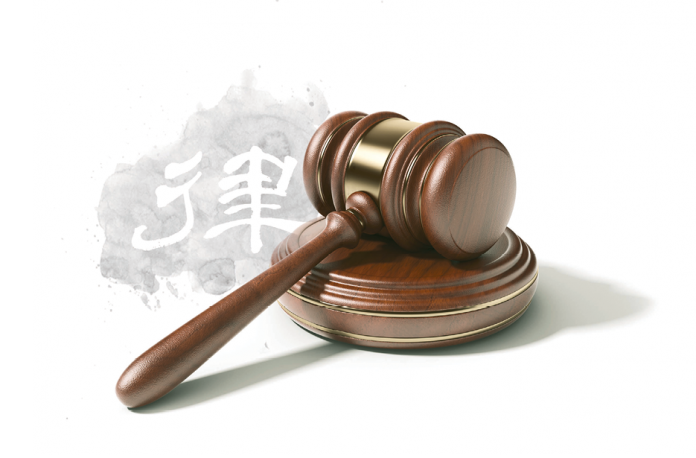It is a fundamental principle that a defendant in criminal proceedings should have the right to be represented by a lawyer. Even in criminal proceedings, however, a defendant may choose to be self-represented.
This article starts by considering the legal basis for the right of a defendant to be represented by a lawyer in criminal proceedings in various jurisdictions. It then examines the challenges for courts and lawyers when dealing with self-represented parties and the applicable professional rules. It concludes by providing some practical guidance for lawyers when they are dealing with self-represented parties on the other side.
The right to be represented by a lawyer in criminal proceedings. This is an essential element of the right to a fair trial and is recognized both in international instruments and also in the domestic law of many jurisdictions. Article 14(3) of the International Covenant on Civil and Political Rights (ICCPR), which was adopted by the United Nations in 1966, provides as follows:
In the determination of any criminal charge against him, everyone shall be entitled to the following minimum guarantees, in full equality:
…
(b) To have adequate time and facilities for the preparation of his defence and to communicate with counsel of his own choosing;
…
(d) To be tried in his presence, and to defend himself in person or through legal assistance of his own choosing; to be informed, if he does not have legal assistance, of this right; and to have legal assistance assigned to him, in any case where the interests of justice so require, and without payment by him in any such case if he does not have sufficient means to pay for it;
…
A similar provision appears in Article 6(3)(c) of the European Convention on Human Rights.
In England, the right is reflected in Article 58(1) of the Police and Criminal Evidence Act of 1984, which provides that a person arrested and held in custody in a police station or other premises shall be entitled, if he or she so requests, to consult a solicitor privately at any time. Interestingly, in many common law jurisdictions such as England and Australia, the common law (i.e. case law) does not recognize a right to legal representation in criminal proceedings and it is in statutory law that the right is embodied.
In the US, the Sixth Amendment to the Constitution states that “in all criminal prosecutions, the accused shall enjoy the right … to have the assistance of counsel for his defense”. In China, too, the right is embodied in the Constitution, article 125 of which provides: “Except in special circumstances as specified by law, all cases in the people’s courts are heard in public. The accused has the right to defence.”
A similar provision appears in article 11 of the Criminal Procedure Law. Article 33 of that law provides a right to pre-trial access to a lawyer for a suspect in a criminal prosecution. And article 34 provides that in certain circumstances, the court must appoint a lawyer if the defendant has not appointed a lawyer himself or herself. These include circumstances where the defendant is blind, deaf, mute or a minor.
When can a party choose to be self-represented and what are the relevant challenges? In the US, the Supreme Court has held that the Sixth Amendment includes the right of defendants in criminal proceedings to represent themselves (known as pro se representation). However, the court can require a defendant to be represented by a lawyer if the defendant does not comply with the court procedures or protocols. In general, the law in most jurisdictions allows parties in criminal or civil proceedings to represent themselves.
However, self-represented parties can present challenges for both courts and also for lawyers who are representing parties on the other side. In court proceedings, courts need to take extra care with self-represented parties to ensure that they are aware of the court procedures and that they do not suffer a disadvantage as a result of not being represented by a lawyer. In many jurisdictions, guidelines have been produced to ensure that judges act fairly and responsibly when dealing with self-represented parties.
In addition, in both contentious and non-contentious proceedings, lawyers who represent one party must take care when dealing with parties on the other side who are not represented by a lawyer. In common law jurisdictions such as England and Hong Kong, the professional rules that are applicable to lawyers contain express provisions dealing with this situation. Two examples from the US and Hong Kong are set out in Citation 1 and Citation 2, respectively.
You must be a
subscribersubscribersubscribersubscriber
to read this content, please
subscribesubscribesubscribesubscribe
today.
For group subscribers, please click here to access.
Interested in group subscription? Please contact us.
你需要登录去解锁本文内容。欢迎注册账号。如果想阅读月刊所有文章,欢迎成为我们的订阅会员成为我们的订阅会员。

Andrew Godwin
A former partner of Linklaters Shanghai, Andrew Godwin teaches law at Melbourne Law School in Australia, where he is an associate director of its Asian Law Centre. Andrew’s new book is a compilation of China Business Law Journal’s popular Lexicon series, entitled China Lexicon: Defining and translating legal terms. The book is published by Vantage Asia and available at beta2.law.asia.





























